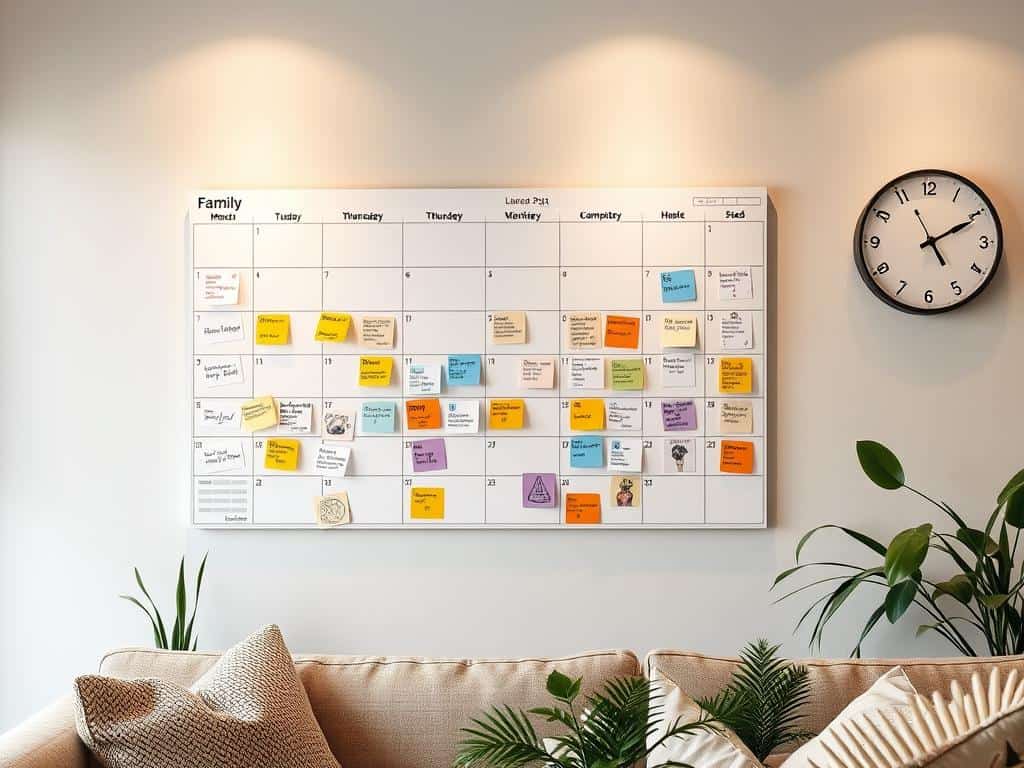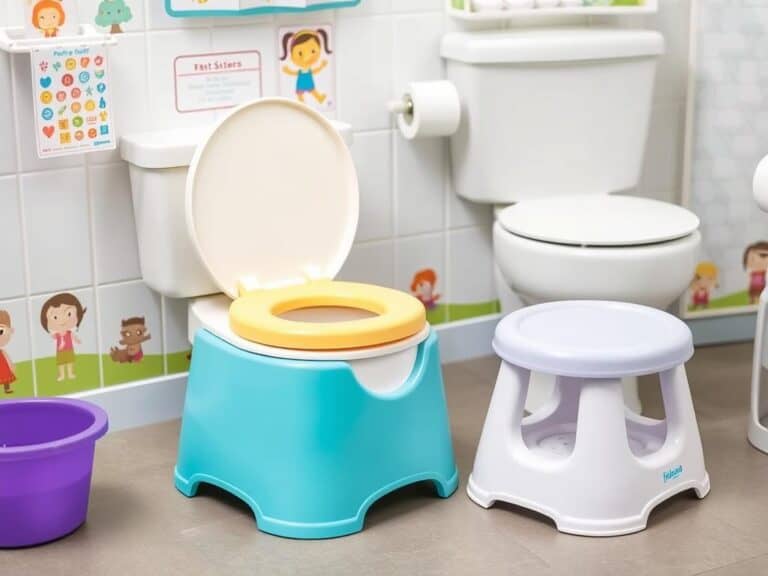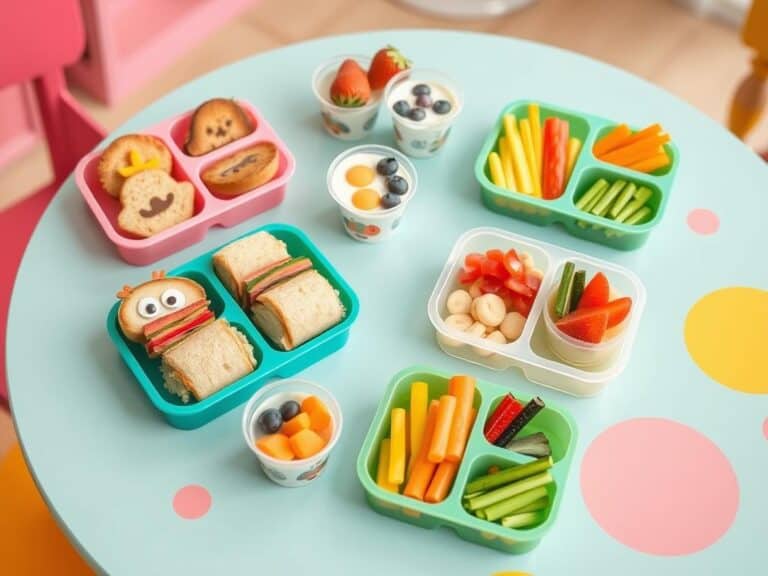Navigating Parenthood: A Comprehensive Guide to Stress-Free Parenting
LEGO Heart Ornament Building Toy Set - Fun Arts and Crafts Idea for Girls and Boys, Ages 9+ - Gift for Kids - Display on The Wall as Home Decoration - 40638
$12.99 (as of January 12, 2026 01:21 GMT +00:00 - More infoProduct prices and availability are accurate as of the date/time indicated and are subject to change. Any price and availability information displayed on [relevant Amazon Site(s), as applicable] at the time of purchase will apply to the purchase of this product.)Schylling NeeDoh Gumdrop - Textured Sensory Toy with Super Solid Squish - 2.5" Tall - Colors May Vary (Pack of 1)
$9.16 (as of January 12, 2026 01:21 GMT +00:00 - More infoProduct prices and availability are accurate as of the date/time indicated and are subject to change. Any price and availability information displayed on [relevant Amazon Site(s), as applicable] at the time of purchase will apply to the purchase of this product.)Play Doh Modeling Compound 10-Pack Case of Assorted Colors, Non-Toxic 2 oz. Cans, Christmas Stocking Stuffer Gifts, Prizes, & Party Favors, Preschool Toys for Kids, Ages 2+ (Amazon Exclusive)
$7.99 (as of January 12, 2026 01:21 GMT +00:00 - More infoProduct prices and availability are accurate as of the date/time indicated and are subject to change. Any price and availability information displayed on [relevant Amazon Site(s), as applicable] at the time of purchase will apply to the purchase of this product.)This post may contain affiliate links which means I may receive a commission for purchases made through links at no extra cost to you. I only recommend products I truly believe in. Thank you for your support!
Parenthood is a journey full of joys, challenges, and big responsibilities. As a parent, I’ve seen the ups and downs of raising kids. From calming a crying baby to guiding a curious toddler, it’s both rewarding and demanding.
This guide is here to help you navigate the ups and downs of parenting. You’ll find practical tips, advice, and emotional support. It’s for all parents, whether you’re new to sleepless nights or seasoned in the teenage years.
Key Takeaways
- Discover practical solutions to common parenting challenges
- Learn how to foster a positive parenting mindset and build resilience
- Explore effective communication techniques to strengthen your bond with your children
- Uncover time management strategies to help you balance work, family, and self-care
- Gain insights into creating a nurturing home environment that supports child development
Understanding the Challenges of Parenthood
Parenthood is a journey filled with joy and challenges. Parents face common stressors that affect their well-being. These include sleep loss, financial worries, and balancing work and family life.
Common Stressors in Parenthood
One big stress is sleep loss. Taking care of a baby or young child messes up our sleep. This leaves us tired and worn out. Also, the money needed to raise a family can be a big worry, making things even tougher.
Another big challenge is finding a good work-life balance. Trying to meet work demands and family needs can make us feel guilty and tired. This is made worse by what society expects of us and the changing rules of parenting.
The Importance of Support Systems
Having a strong support network makes parenting easier. Family, friends, and parenting groups offer emotional and practical help. They help us deal with stress and feel less alone.
Working with mental health experts is also key. They help us find ways to meet our child’s changing needs. Celebrating small wins can boost our child’s confidence and motivation.
By taking care of ourselves, sticking to routines, and improving communication, we can face parenting’s challenges better. We can do this by being flexible, setting realistic goals, and finding joy in parenting.
Establishing a Positive Parenting Mindset

As parents, we often aim for perfection. But, accepting our flaws is key to a positive mindset. By letting go of the need to be perfect, we can focus on loving and understanding our kids.
Embracing Imperfection
Parenthood has its ups and downs. It’s okay to make mistakes. Instead of beating ourselves up, we can use these moments to grow and learn. This shows our kids the value of resilience and self-acceptance.
The Role of Self-Compassion
Self-compassion is crucial in positive parenting. When we’re kind to ourselves, we can be kinder to our kids. This helps us handle parenting’s tough times with grace and wisdom.
Cultivating Resilience
Resilience is at the heart of positive parenting. By being resilient ourselves, we help our kids develop theirs. Mindfulness, stress management, and support from others can build our resilience. This way, we teach our kids to face challenges with courage.
By accepting our flaws, being compassionate, and building resilience, we create a positive parenting mindset. This not only makes our families happier but also prepares our kids for life’s challenges.
Effective Communication with Children

As parents, we know building strong relationships with our children is key. At the heart of this is effective communication. This skill can grow over time. By using active listening and open dialogue, we create understanding and respect.
Active Listening Techniques
Active listening is more than just hearing what our children say. It’s about understanding their views and feelings. Key techniques include:
- Maintaining eye contact to show engagement
- Paraphrasing their statements to confirm understanding
- Asking open-ended questions to dive deeper
- Validating their emotions without judgment
When we listen actively, our children feel heard and valued. This makes conversations more productive.
Encouraging Open Dialogue
It’s important to create a space where our children feel safe sharing their thoughts. We can do this by:
- Starting conversations regularly, not just when there’s a problem
- Avoiding criticism and focusing on understanding
- Encouraging them to share feelings without fear
- Sharing our own experiences and vulnerabilities
By encouraging open dialogue, we strengthen our parent-child communication. We also gain insights that help us parent better.
Setting Boundaries with Empathy
Setting clear boundaries is key for a child’s growth. But we must do it with empathy and understanding. This means:
- Explaining the reasons for our rules and expectations
- Listening to their concerns and perspectives
- Adjusting boundaries with flexibility and compassion
- Modeling respectful behavior and conflict resolution
By setting boundaries with empathy, we create a safe and supportive environment. This helps our children grow and become independent.
“The greatest gift you can give your child is your own wholeness.” – Eda LeShan
Effective communication is the key to a healthy parent-child relationship. By mastering active listening, encouraging open dialogue, and setting boundaries with empathy, we can navigate parenthood with confidence. This builds trust and understanding that will help our children in the future.
Time Management Strategies for Busy Parents

Being a busy parent is tough. You have to balance work, parenting, and personal life. Good time management helps reduce stress and boosts productivity. Here are some tips that work for me and many other parents.
Prioritizing Tasks
Managing a busy schedule starts with prioritizing. Every morning, I look at my to-do list. I pick the most urgent and important tasks for when I’m most energetic. Saying “no” to things I don’t need to do helps keep my schedule clear.
Creating a Family Calendar
A family calendar changed my time management. I use a digital one to track everyone’s schedules. It helps me avoid conflicts and plan better. My family helps with the calendar too, making us all more organized.
Tips for Delegating Responsibilities
Delegating tasks is key for busy parents. I involve my partner and older kids in household and childcare tasks. Sometimes, I hire help or ask friends and family for a hand. This way, I have more time for what’s important.
These strategies have made my life less stressful and more productive. Finding the right balance is hard, but it’s doable with effort and creativity. You can manage the challenges of parenting.
“Time management is not just about getting more things done; it’s about getting the right things done.”
Creating a Nurturing Home Environment

As parents, we know how key a nurturing home is for our kids. We focus on play area organization, family routines, and safety. This creates a space for growth, learning, and feeling safe.
Organizing Play Areas
Setting up special play zones in our homes boosts creativity and activity. We pick areas with toys, books, and art for our kids. Keeping these tidy lets kids dive into their imagination and explore freely.
Establishing Family Routines
Family routines are the base of a nurturing home. They include set times for meals, bedtime, and activities. These routines help manage daily life and make our kids feel secure and connected.
The Importance of Safety
Keeping our kids safe is crucial in a nurturing home. This means making our spaces safe, watching what they’re online, and teaching them safety. By focusing on safety, we give our kids a worry-free place to grow and learn.
By organizing play areas, setting routines, and focusing on safety, we build a nurturing home. This approach supports our kids’ growth and well-being. It also strengthens our family bond and sets the stage for a lifetime of learning.
| Element | Benefit |
|---|---|
| Organized Play Areas | Encourages creativity, exploration, and physical activity |
| Consistent Family Routines | Provides a sense of security, stability, and belonging |
| Prioritized Child Safety | Ensures a worry-free environment for growth and development |
“A nurturing home environment is the foundation for a child’s healthy development and well-being.”
Balancing Work and Family Life

Many parents today struggle to find a balance between work and family. It’s key to find ways to excel in both areas. By setting clear boundaries, being flexible, and valuing family time, we can live a fulfilling life.
Setting Work-Life Boundaries
It’s important to separate work from family life. About 60% of working parents find it hard to do this. We can manage our time better by saying “no” and using tools like Google Calendar.
Flexibility in Parenting Duties
Being flexible in parenting can greatly improve our well-being. Studies show that parents who spend quality time with their children in the evenings have stronger bonds. Using services like grocery delivery can give us more time for our kids.
The Benefits of Family Time
Spending quality time with family is vital for our children and us. Parents who use their time off well make lasting memories. Activities like weekend adventures or family game nights are important.
By balancing work and family, we can handle parenting better. Setting boundaries, being flexible, and valuing family time help us live a fulfilling life. This nourishes both our careers and our relationships.
| Statistic | Percentage |
|---|---|
| Parents who feel overwhelmed when trying to balance work and parenthood | 40% |
| Working parents who struggle with effectively separating work and family responsibilities | 60% |
| Working mothers in the marketing and digital marketing industry who struggle with balancing work and family life | 78% |
| Working mothers who feel overwhelmed by the demands of their career and family | 62% |
| Online influencers who mentioned the importance of utilizing time management techniques to handle work and family responsibilities | 85% |
| Working parents who rely on external support such as childcare facilities, family members, or friends | 70% |
| Working mothers who have incorporated productivity tools to enhance time management capabilities | 95% |
| New mothers who actively engage in building their support network within the community to access reliable childcare resources | 80% |
| Working mothers who prioritize self-care activities to prevent burnout and enhance well-being | 60% |
| Dual-income families who opt for time-saving services like grocery delivery and cleaning assistance | 75% |
| Working mothers who embrace the concept of saying “no” strategically to align their commitments with their priorities | 88% |
“Balancing work and family life is a constant dance, but with the right strategies and a supportive network, we can create a life that nourishes both our careers and our most cherished relationships.”
Encouraging Positive Behavior in Children
We all want our kids to be well-behaved and emotionally smart. The positive discipline method is key. It focuses on respect, empathy, and solving problems. This way, kids learn to handle their feelings and make good choices.
Positive Reinforcement Techniques
Positive reinforcement is a big part of positive discipline. Studies show praising kids for good behavior works well. When we praise them, they want to do it again. We can also use small rewards to encourage them.
Setting Expectations and Consequences
It’s important to set clear rules and follow through. Experts say to make family rules and stick to them without yelling or punishing. This teaches kids about boundaries and helps them control themselves. If they mess up, help them find a better way to do it.
Positive discipline is great for managing behavior and helping kids grow. By using positive discipline at home, we raise kids who can face life’s challenges.
“Positive parenting interactions were observed and scored at 4, 8, and 18 months, and child self-regulation was assessed at 4, 8, 18, and 30 months.”
Fostering Emotional Intelligence
Emotional intelligence is crucial for a child’s success. As parents, we can nurture this skill. This helps our kids deal with emotions in the world.
By teaching them to identify their feelings, we encourage empathy. This sets them up for a life of social and emotional well-being.
Teaching Children to Identify Feelings
It’s hard for young ones to recognize and express emotions. We can start by labeling our feelings. This helps them understand their own emotions too.
This simple act boosts self-awareness. It also helps with emotional control and solving problems.
- Use descriptive language to name emotions (e.g., “I feel happy,” “I’m feeling frustrated right now”).
- Ask your child to identify how they are feeling and why they might be experiencing that emotion.
- Validate and normalize their feelings, letting them know it’s okay to feel a range of emotions.
Encouraging Empathy in Daily Life
Empathy is key to emotional intelligence. It helps our kids develop social skills and connect with others.
- Encourage your child to consider the perspectives of others. Ask them how they think their friend or sibling might be feeling in a given situation.
- Model empathetic behavior by expressing concern for others and discussing how your actions might affect those around you.
- Engage your child in acts of kindness, such as making cards for a sick neighbor or donating gently used toys to a local charity.
Teaching emotional intelligence is a journey. But the benefits are huge. We prepare our kids for success in life by teaching them to understand and share feelings.
“Emotional intelligence is the ability to recognize, understand, manage, and reason with emotions.”
Building Strong Family Bonds
Strong family bonds make a home happy. Sharing experiences is key to strong family ties. Spending quality time together helps us connect and feel united.
Planning Family Activities
Planning family activities is great for bonding. It could be a weekly game night or a yearly vacation. These moments help us laugh, learn, and make lasting memories.
The Importance of Quality Time
In our busy lives, we often forget to connect with family. Quality time is vital for strong family bonds. It lets us understand each other better and share feelings.
“The most important thing that parents can do for their children is to spend time with them.” – Dianna Eade
Playing games, going for hikes, or having meals together are special. These moments of quality time make us feel part of a family. By valuing these times, we build a strong family foundation.
Managing Parental Stress
Parenting is rewarding but also stressful. As a parent, I face many challenges. But, there are ways to manage stress and be more mindful.
Strategies for Stress Reduction
Cognitive-behavioral stress management (CBSM) is a powerful tool for me. A study showed it can reduce burnout in parents. It helps me handle parenting’s ups and downs better.
Practicing self-care is also key. Getting enough sleep, exercising, and doing hobbies helps me stay well. When stressed, I take deep breaths, go for walks, or take time for myself.
The Role of Mindfulness and Relaxation
Mindfulness has changed how I manage stress. It helps me stay present and calm. Activities like meditation and yoga bring peace.
Using relaxation techniques like progressive muscle relaxation helps too. These simple exercises offer a break from parenting’s demands. They can be done at home.
These strategies help me manage stress and be a better parent. Remember, taking care of yourself is not selfish. It’s necessary for being a great parent.
Seeking Help When Needed
Being a parent is tough. We have to work, take care of our family, and take care of ourselves. It’s important to know when to ask for help. Asking for help shows we are strong, not weak.
It helps us find the support and advice we need. This way, we can handle the tough parts of being a parent better.
Understanding When to Ask for Support
There are signs that show you might need help. Feeling overwhelmed, anxious, or not supported are big ones. If you’re feeling this way often, it’s time to look for help.
Some signs include:
- Persistent feelings of stress, depression, or burnout
- Difficulty managing daily tasks or maintaining a healthy work-life balance
- Concerns about your child’s behavior or development
- A lack of support from family, friends, or your local community
Resources for Parents in Need
There are many ways to get help. You can find professional counseling, support groups, and community services. Here are some options:
- Parenting Support Groups: Meeting other parents can make you feel less alone. You share experiences and find support.
- Professional Counseling: A therapist or family counselor can help. They teach you how to cope, improve family communication, and deal with mental health issues.
- Community Resources: Local groups, nonprofits, and government agencies offer classes and workshops. They help families grow and succeed.
Don’t face parenting alone. By using parenting support, professional help, and community resources, you can help your family. You create a safe place for your kids to grow.
“Asking for help is not a sign of weakness, but a sign of strength. It takes courage to admit that we need support and to reach out for the resources we need to thrive as parents.”
Celebrating Parenting Milestones
Parenting is a journey filled with challenges and triumphs. It’s key to celebrate the milestones that show our growth as parents. Every achievement, like the first steps or words, shows our hard work and love.
Recognizing Achievements
It’s important to focus on the small wins in life. By celebrating both big and small achievements, we boost our children’s confidence. Each milestone, from mastering a new skill to a successful bedtime routine, is worth celebrating.
Creating Lasting Memories
Marking parenting milestones helps create lasting memories. These moments, captured in photos or special messages, strengthen our family bond. They honor our children’s growth and create a sense of unity that lasts.











